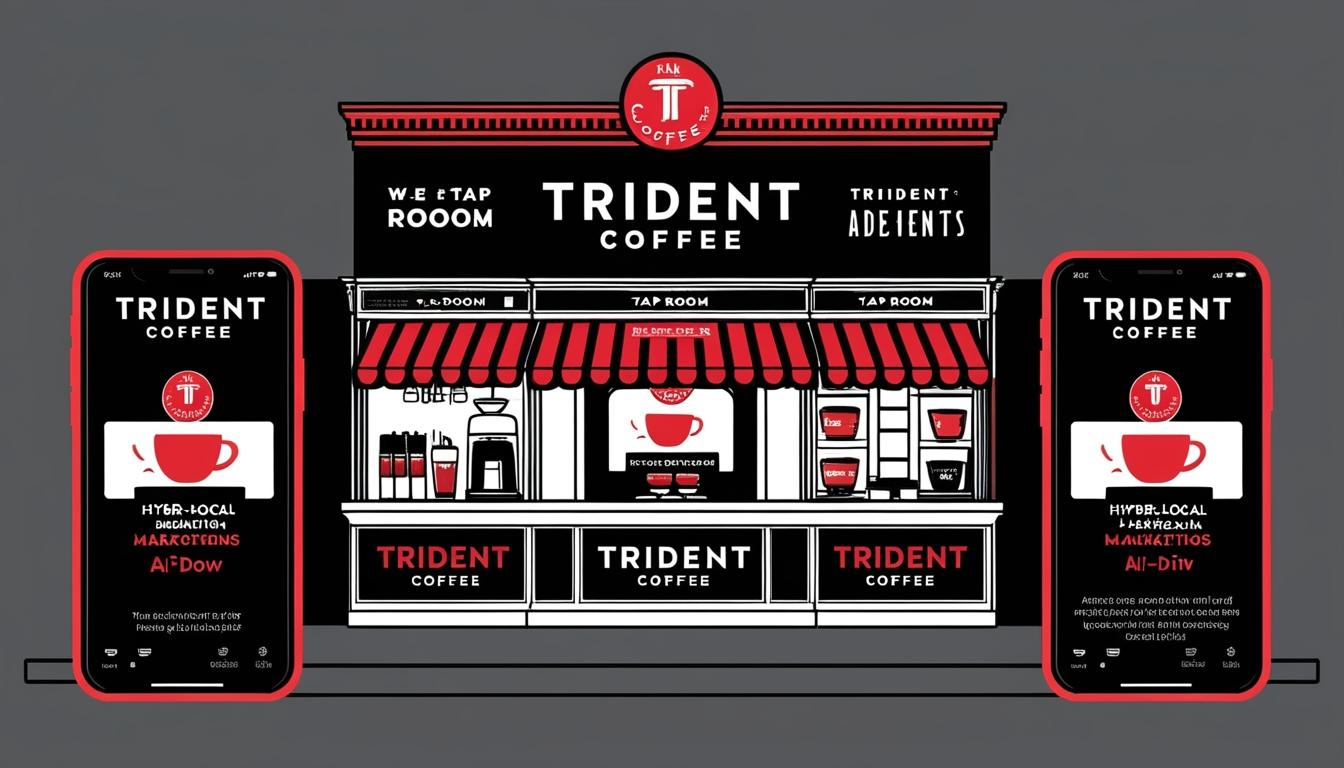The rise of generative AI technology has prompted significant shifts in advertising strategies, particularly for small and medium-sized businesses (SMBs) in the digital space. At the recent Consumer Electronics Show (CES), Comcast Advertising unveiled its new product, Universal Ads, which aims to streamline the ad creation and serving process for businesses with limited marketing expertise. NBCUniversal's Chairman of Global Advertising and Partnerships, Mark Marshall, highlighted that Meta currently boasts over 10 million SMBs on its advertising platform, in contrast to NBC's much smaller user base.
One local business that exemplifies the application of these new technologies is Trident Coffee, a San Diego-based coffee seller that transitioned from retail distribution to a direct-to-consumer (DTC) model with several stores, or "tap rooms.” The company has adopted Streamr.ai’s innovative solutions to auto-generate and optimise streaming advertisements, enabling them to effectively target their marketing efforts.
Eric Johnson, the Founder and CEO of Trident Coffee, engaged in a discussion about the implications of their shift to DTC sales and how it has altered their media strategy. Previously, using retail channels made identifying their customer base challenging and costly due to expensive data acquisition. “The media mix is different now,” Johnson explained, acknowledging the advantages that come with fine-tuned advertising capabilities such as geolocation and targeted demographic metrics.
Johnson elaborated on the importance of hyper-local advertising, noting that Trident aims to promote its offerings within a three-to-five-mile radius of its stores. By leveraging the capabilities of their advertising technology, the company can ensure its resources are focused on consumers close to their locations, avoiding unnecessary expenditure on a broader audience that might not visit their tap rooms.
Through the use of Streamr.ai, Trident Coffee is able to produce engaging, relevant video content that resonates with their target audience. This includes features like hyperlink integration, geolocation tagging, and demographic targeting, enhancing the effectiveness of their campaigns. Johnson indicated that Streamr's technology transforms basic content into animated, visually appealing ads that capture consumer attention more effectively than static images.
The company is also keen on utilising dynamic ads on platforms like Amazon Prime Video, having already tested campaigns during events such as March Madness, which yielded positive local impressions. Johnson expressed enthusiasm about potentially automated ad generation, underlining a smooth process for securing content approval for their initiatives.
When asked about the efficacy of auto-generated creative compared to traditional advertisement production, Johnson conveyed confidence in the technology, asserting that it is not just more efficient, but also superior in quality. He noted that Streamr has successfully avoided common pitfalls seen in generative AI, ensuring that the final products reflect the brand’s aesthetic without compromising on realism.
The company is strategically focusing its promotional efforts on platforms where consumer purchasing activity is concentrated. Johnson remarked on the emerging trend where consumers are increasingly turning to platforms like Amazon and TikTok Shop for their product needs, suggesting that being visible on Amazon Prime is aligned with their goals for their DTC initiative.
The advancements in AI automation and their integration into advertising platforms are reshaping business practices across industries, promising efficiency and effectiveness particularly for smaller enterprises. As these technologies evolve, many SMBs may find themselves benefiting from tools that allow them to compete on a larger scale while tailoring their efforts to local markets.
Source: Noah Wire Services
